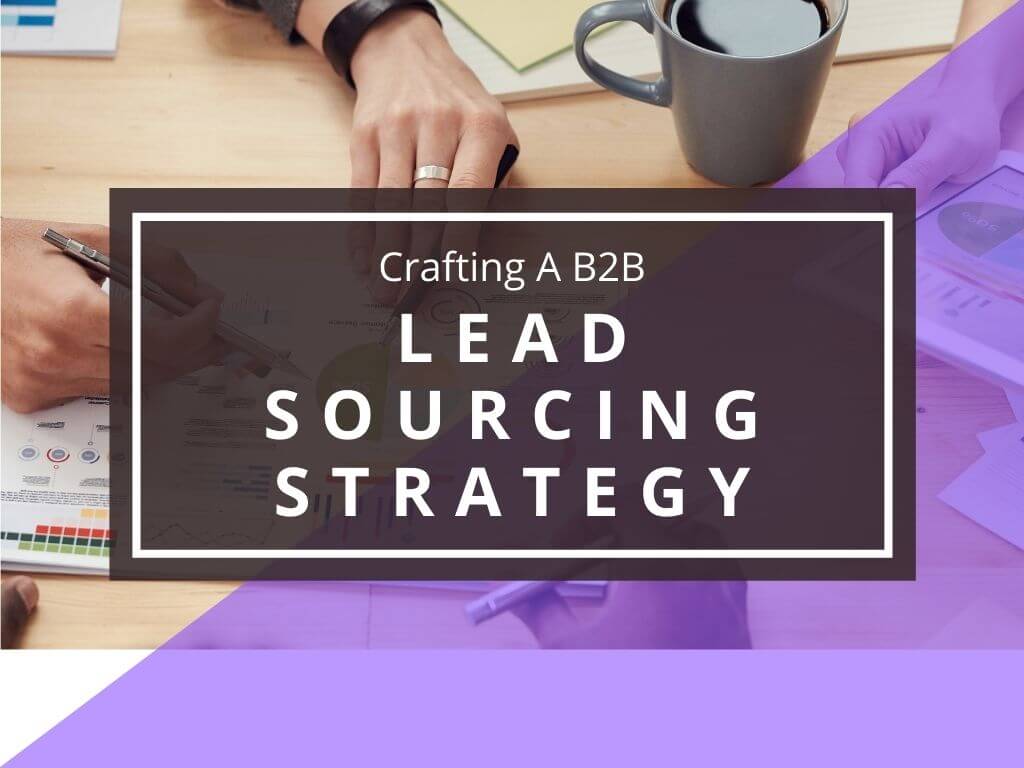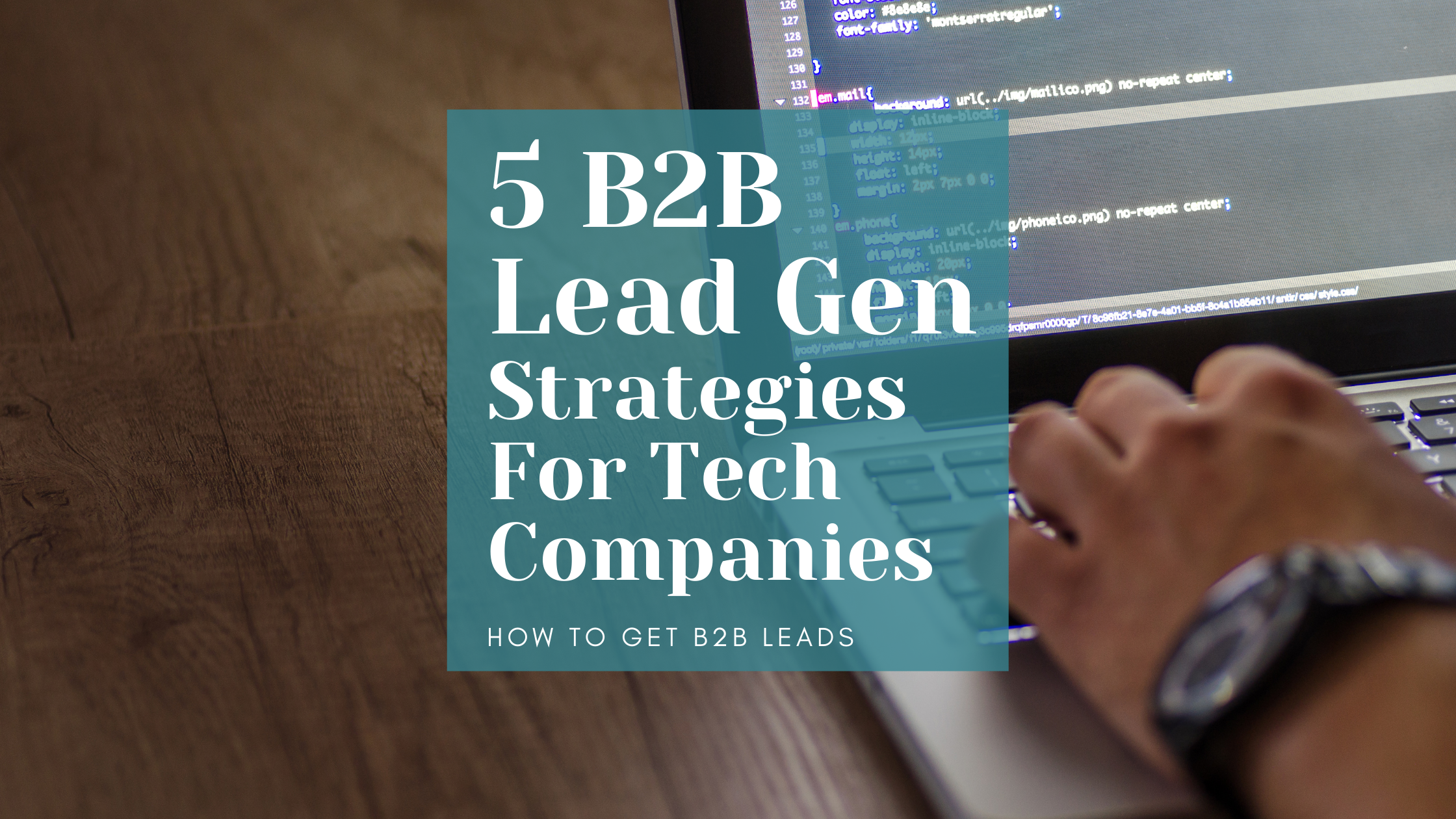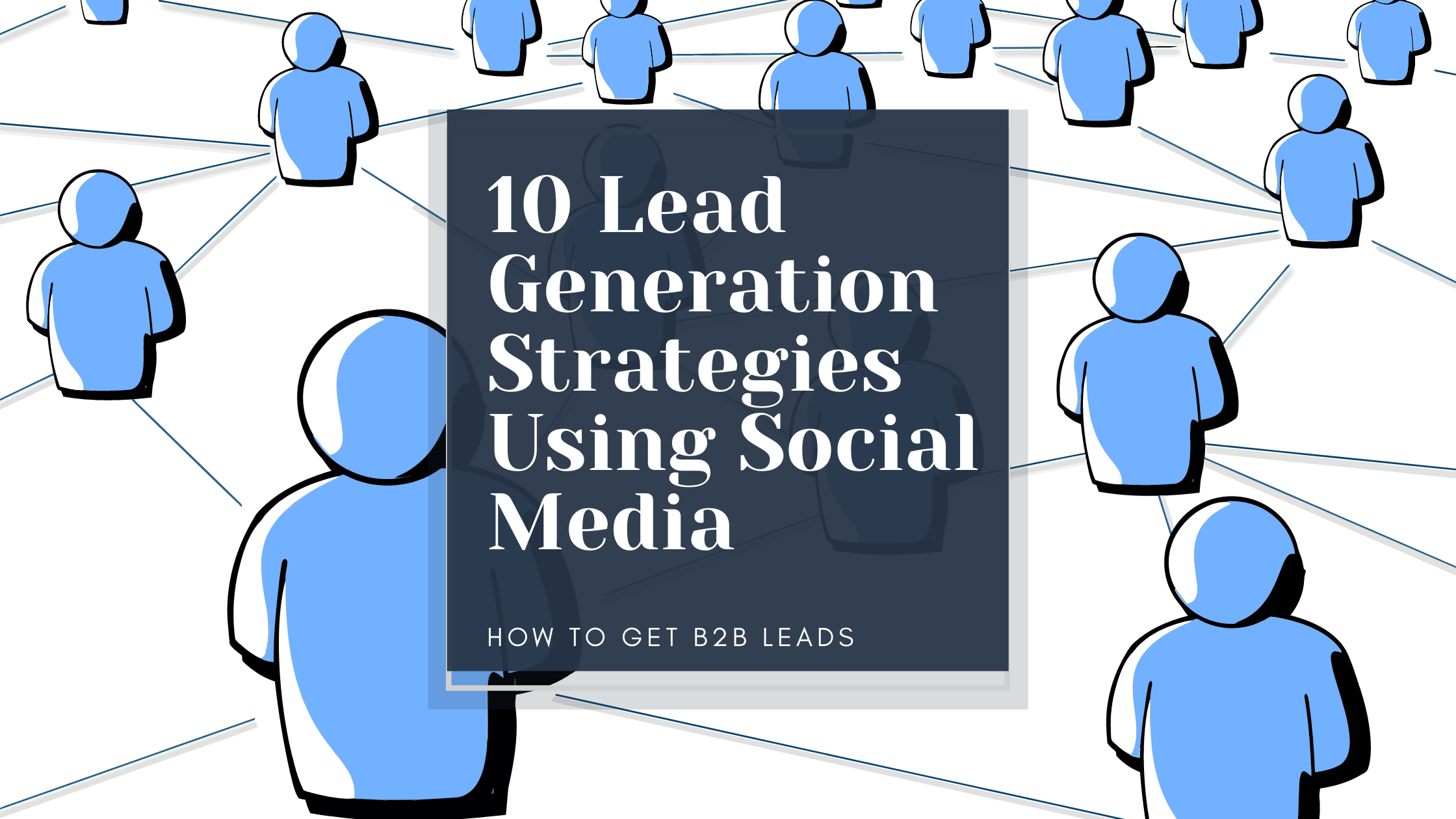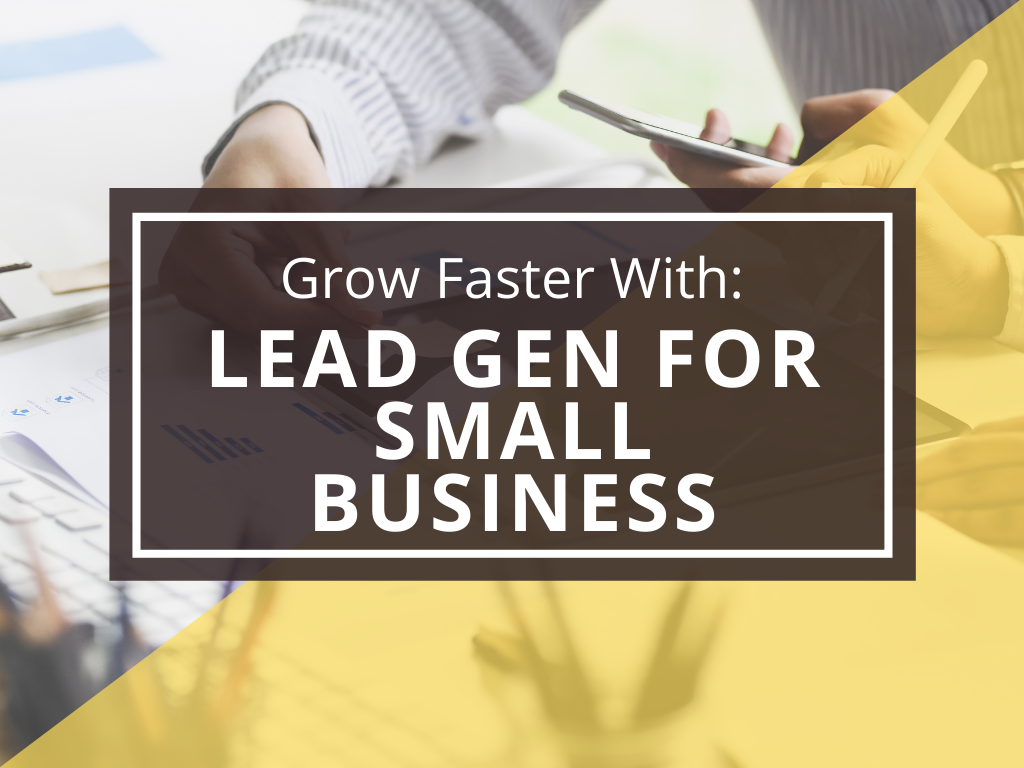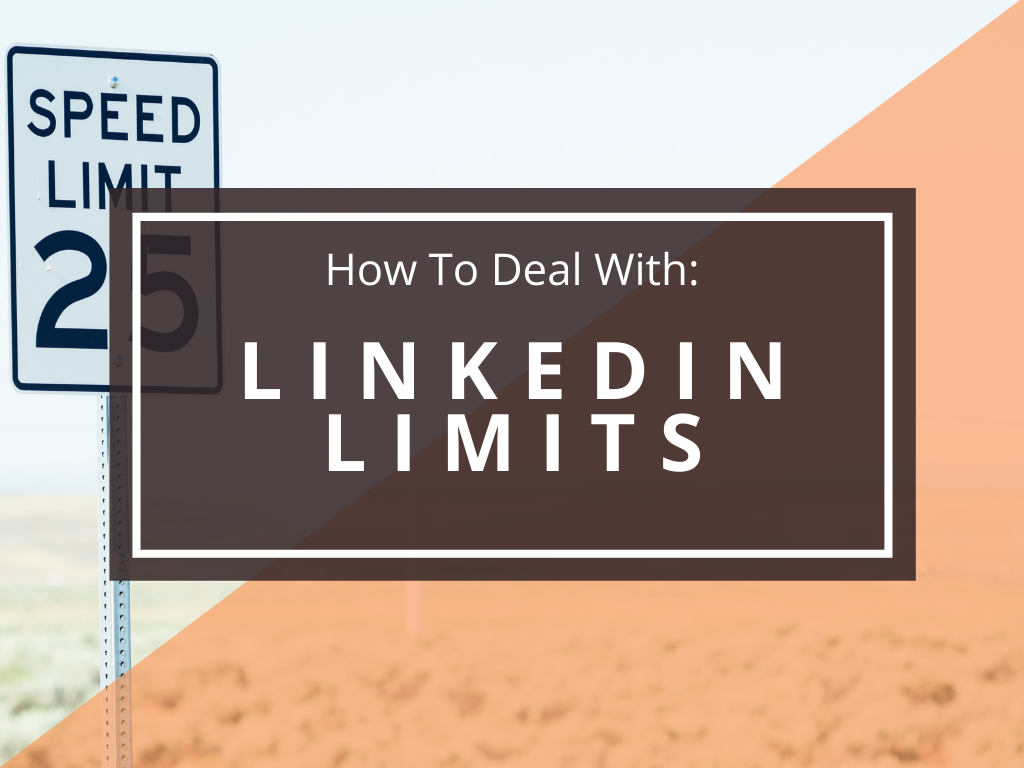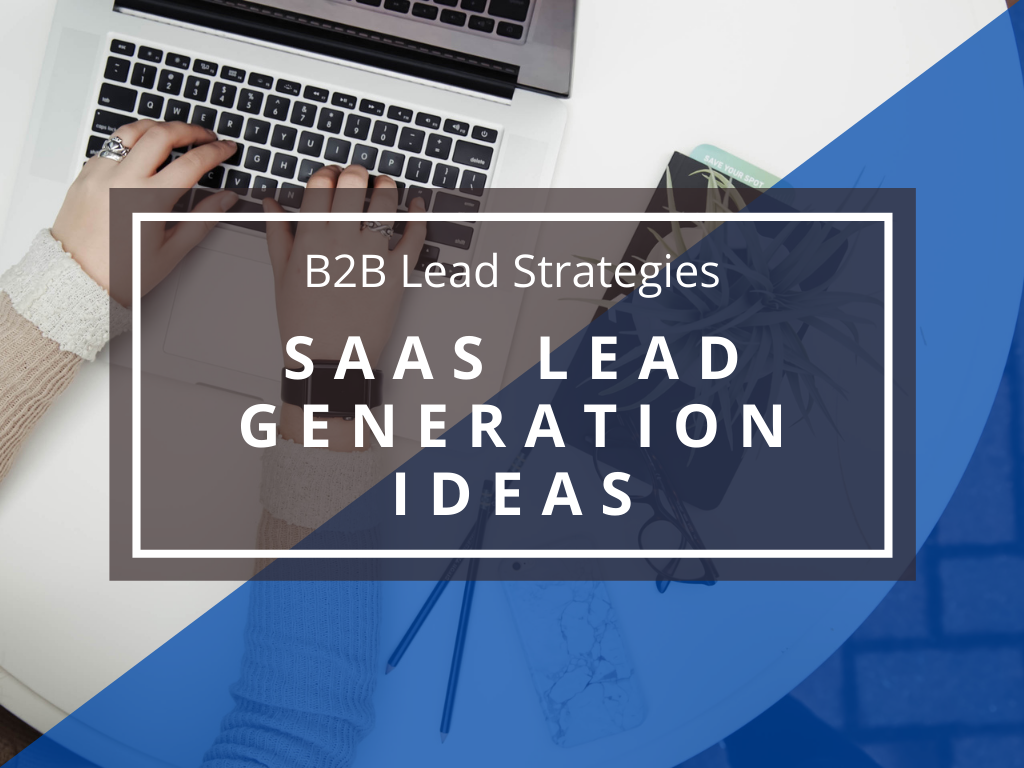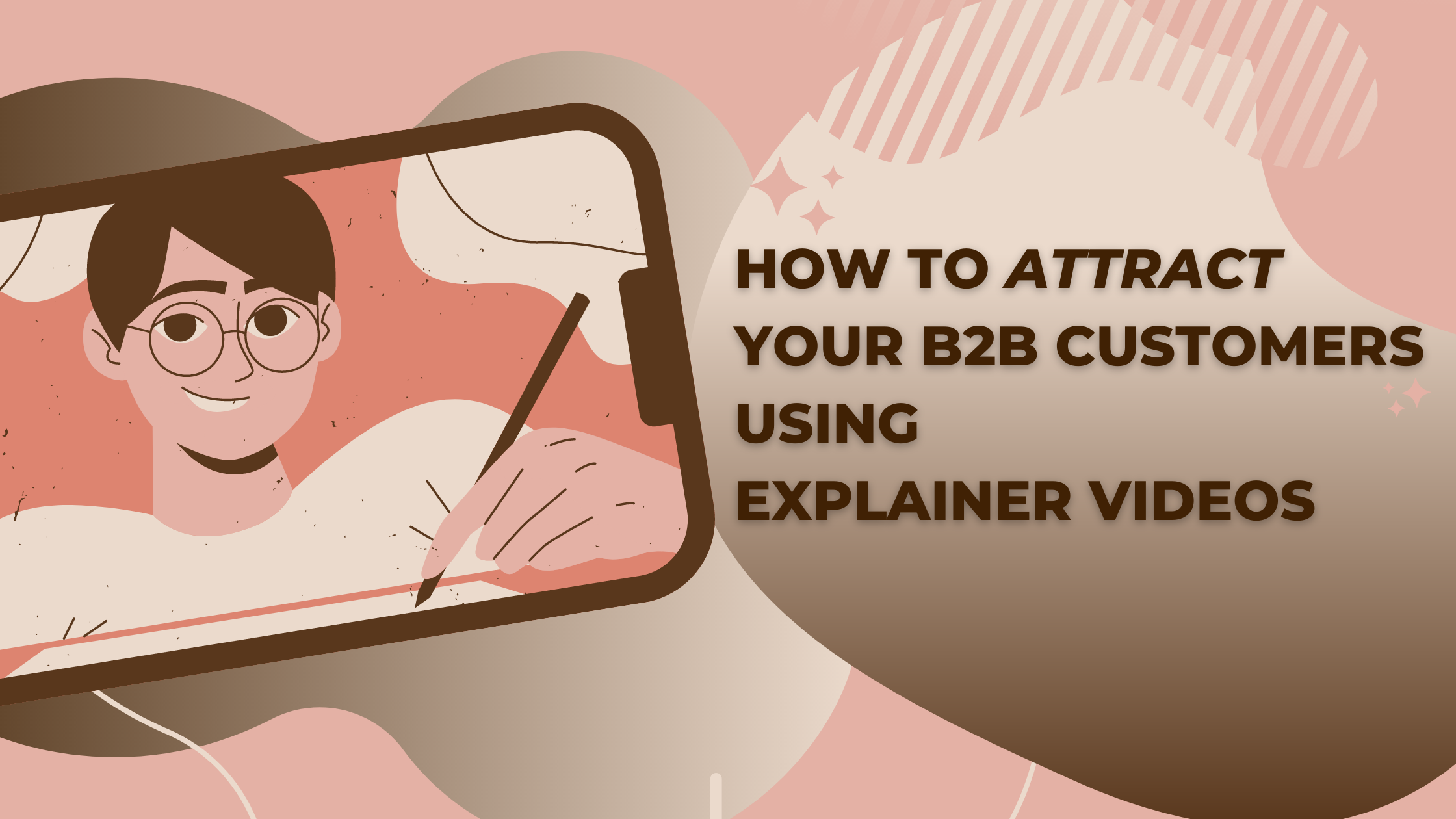Lead Sourcing
You’ve probably heard of lead sourcing before, but what is it? And how can you do it? Lead sourcing—also referred to as “outbound marketing” or “lead generation”—helps companies find customers.
Lead generation is the practice of identifying potential customers and generating leads for those prospects. The goal of lead generation is to provide your target audience with relevant information about your company that will encourage them to want what you have to offer. Lead generation can be done through a variety of techniques, including:
– Advertising on social media platforms;
It takes no outside investment other than time and effort.
In this guide, we’ll talk about how lead generation works, why you should use it, and how you can go about implementing your own strategy!
Remember, there is no perfect lead generation strategy. You just have to figure out what works for your business.
What is Lead Sourcing?
Let’s step back and explain what lead generation is. It sounds more complicated than it actually is, but understanding the basics will help you get started!
Lead generation is the process of finding prospective customers who have an interest in your product or service. This includes identifying and contacting potential leads through a variety of methods, such as emailing people on your list (opt-in lists), advertising online, cold calling, searching for potential customers on social media platforms like LinkedIn and Facebook, sending out emails to potential customers.
The process of generating leads is where website visitors – also called prospects – are converted to potential customers.
Three stages must take place before there is a meeting between the prospect and advertiser:
- sourcing qualification;
- communications qualification;
- conversion qualified
From prospect to lead – The Journey
- A prospect is a website visitor who experiences a problem/challenge but is not yet familiar with the possible solution for your organization.
- A prospect becomes a lead as soon as he shows interest in your products/services.
- A lead becomes a customer as soon as he makes a purchase, as soon as he is convinced of the help that your organization offers him.
To realize the above conversion moments, you use various online marketing channels. After all, you want to create contact moments to collect valuable data. The data is of crucial importance – in a later phase – to ‘bring in’ the lead at the right time and to convert them to a customer.
Lead generation is a strategy that can be implemented in nearly any business, but it becomes especially important when you are struggling to find new customers or generate interest in your product/service offering.
What are your Key Performance Metrics?
The first step of implementing lead generation in your company is identifying the goals you have set out such as how many leads do you need per month to hit your target KPIs? Do you have the resources and knowledge to find warm leads for your business? Is your sales team prepared to properly handle an influx of leads?
After that, it’s time to conduct research on how lead generation is being executed by other successful companies. Who are they targeting via social media ads or campaigns? What kind of content are they creating and what kind of distribution channels do they use. Have a clear idea of what success looks like for your company before you take the first step is key.
Lead Sourcing Skills – Understanding where to source leads
The next step is to identify channels and sources for possible leads. There are a variety of options out there that can be tailored to your specific needs such as lead generation software, social media ads, or even cold-emailing potential customers.
It all depends on your ideal customer’s behavior, the channels they use, and the budget you want to allocate.
Planning is key when it comes to lead generation. Spending time upfront clarifying your goals will allow you to establish a clear idea of what success looks like for your company before you take the first step.
1.Use third-party listings to find leads.
Websites like Fiverr and Upwork are a great way to get free leads for your business on services that you can offer. When you find matches with 3rd-party clients, they may want to work with you right away which is invaluable to include in your time-to-close KPI and bottom-line revenue.
2. Create valuable content prospective buyers will love
One of the most effective ways you can get leads is to produce and promote content. You’ll see a short-term boost with social media, but this also creates long-term benefits that are completely free and just requires some time, skills, and consistency.
The best way to get leads in marketing is by doing what you do best and make it easy for others. If that means creating a blog post, podcast show, Youtube video series, or something else related to your niche market – go ahead! Just be sure the content has high value and will help companies solve their challenges with solutions they haven’t considered yet.
If there are any questions about lead generation please contact us at brightestminds.io – we’ll gladly answer them for you!
3. Networking online.
How to find new customers online. Whether you’re on social media sites like Facebook and Twitter or using forums like Reddit and Quora, networking with the people in your market will bring you free leads for your business. This method of acquiring new customers can be time-consuming, but it develops a better understanding of what your customers are looking for and why they buy your products or services. In turn, this develops a sense of empathy and customer knowledge that money can’t buy
Your Ideal Customer
Where you decide to source leads depends largely on your ideal customer. First of all, we ask you the question: can you describe your ideal customer? When you know that, you know who your potential buyers are. This way you can use your online marketing in a more targeted and effective way.
What channels does your ideal customer use? What content are they interested in seeing on social media, and how can you promote your product to them without being too pushy or aggressive. It’s been said many times that knowing your customer is the key to success.
Here are the basic elements to create an ideal customer profile:
- Age range
- Gender
- Income bracket
- Education level(s)
- Social habits (social media use, TV watching hours per week etc.)
How to research your ideal customer:
- Google search
- Facebook groups and pages (search for your competitors’ Facebook page to see what they post)
- Industry trade show
If you’re not sure how to research, there are many tools and platforms out there that will help. For example, Reveal has a tool that can be used to find potential customers for your business.
The key to lead generation is knowing where your leads spend their time.
When you know this, it’s a lot easier to create and distribute content for online lead generation.
Here are some places to find potential customers:
- Almost 40% of B2B marketers say they generate leads from Facebook.
- 30% of marketers say they generated leads from Twitter
- 44% of B2B marketers have discovered leads on Linkedin.
Social media networks like Facebook and Twitter, especially groups or pages for the industry in which your buyers work or they may be considering switching to.
Google search is a great way to find your prospects, as you can filter by location and keywords.
Now that you’ve got a general idea of your customer’s demographics and interests, it should be much easier for you to decide the best course of action
Researching your target audience, finding out their pain points, and what they want from a product like yours will help you narrow down which channels are best for lead generation. Once you’ve done that, it’s time to find the right people in those channels who are most likely going to be interested in your solution.
Lead sourcing skills – Tools, Tricks, and Knowledge
What important skills do you need for lead generating and prospecting? Once you’ve found your ideal customer and know what channel to communicate to them through, you’ll need skills to do so. Lead generation is all about marketing, and you’ll need to be a skilled marketer in order to find those ideal clients who will really appreciate the solution you provide.
Lead Sourcing Skills You’ll Want to Have:
- A keen eye for details and a strong instinct for sales or marketing.
- The ability to think on your feet, change direction quickly when needed, stay focused under pressure, and be flexible in the face of new information.
- Good instincts about what leads will convert into clients (or which buyers are worth going after.
- The ability to be a self-starter, work independently and manage your time efficiently.
- A willingness to reach out – cold call or email potential customers/clients
Here are some basic marketing skills you’ll need to know:
- Keyword research,
- Copywriting and content creation,
- SEO on-page optimization
- Landing page optimization,
- Social media marketing.
Once you’ve got these skills mastered, it’s time for lead generation techniques! These are the hands-on tricks that will get your leads pouring in faster than ever before. Here are a few examples of some lead generation techniques:
- Responding to people’s social media posts,
- Creating a blog,
- Offer pop-ups,
- A/B testing,
- Content marketing.
The way you use these lead generation techniques will depend on your business type and goals – but the important thing is to have a strategy for reaching out to potential leads before they even know they need what you’re selling! Remember that it can take some.
Content marketing lead generation
Content marketing is a staple lead generation strategy that’s been around for years, but it is still one of the most powerful lead generation techniques. Content marketing uses blogs to create valuable content about your business and products that will be appealing to potential customers – and this strategy has such a wide reach that you can even use other platforms like Facebook or Twitter as part of your outreach efforts!
The more people who see what you have going on, the more sales leads will come pouring in over time.
Understanding Your Buyer’s Journey
The 3 phases of the buyer journey
Awareness – Where the customer experiences a difficulty, they investigate and provide information about it.
In this phase, they’re interested to talk about how and why having the problem impacts their life. They may seek to join communities or forums to get advice. They may start asking for recommendations from friends and family on how they can solve the problem.
Start of purchase – The customer has now found out there is a solution, but not necessarily that it’s best for them as an individual. Here they’re looking at what options are available in terms of pricing and features.
The prospect gathers information through reading blogs, searching social media, and requesting free premium content such as e-books, whitepapers, and infographics. They also use checklists to confirm their concerns/issues upfront.
Do’s:
- Write blog posts to answer their questions, offer an e-book with in-depth information, and share tools for him to request information for free / without obligation.
Don’ts:
- Propose your products and services as possible solutions to their issues.
Consideration
After defining the problem, your prospect evaluates which approach helps him solve his problem.
In the awareness stage of buying, they searched for information through blogs and ebooks. These are slightly more sophisticated than websites they looked to in the first phase.
In the consideration phase, buyers are not yet convinced that your offer is the perfect solution to their problem.
By providing them with valuable information you show that you care about solving their problems without trying to sell them anything.
They’re usually looking for free content to save themselves time or money.
This is where the prospect has become aware of their problem and evaluates which approach helps him solve his problems or get what he needs. He checks out blogs and e-books in this phase, these are slightly more advanced than websites they looked at during the initial awareness stage.
Do’s
- Offer advanced blogs and premium content offers, share in-depth and solution-oriented information about your product/service, and refer to cases and datasheets for those interested.
Don’ts
- Ask about the customer’s budget and the process for requesting a quote.
Decision
In the final phase, prospects make a choice and determine which approach/strategy best suits them and their organization.
This is the phase where leads are most ready for sales. They will be happy to receive a demo or price overview, but you can also offer something else like a free consultation.
In the decision phase of the customer’s journey, you want to help them in every way possible to make a decision.
Help your buyers by providing additional information and/or assistance if they need it, but don’t contact the customer unless they ask for help or you are told explicitly that’s what is needed.
Decision-makers usually want to be left alone during this phase of the sales process. They want to do their research and weigh the options.
If you don’t hear from the customer until they’re ready to buy, it’s because they are still in the decision phase and may or may not be interested. You just never know what will happen so always stay alert for opportunities when a prospect is at this stage of their journey.
Prospect Qualification
The next step is lead qualification. This means identifying if the person or company contacting you about purchasing something actually has the resources and budget for it, all while avoiding wasting time on prospects who are not qualified enough. Lead qualification should also be done as soon as possible so that a high-quality lead is not lost.
When qualifying a lead, the salesperson will want to know what kind of company they are dealing with, their revenue and profitability, how many employees there are at that company or organization, when they would like to purchase the product, why they need it.
Sometimes qualifying a lead can also involve determining if someone is in-house or an external customer.
If you have done your due diligence and are fairly certain the prospect has the money to buy from you but they haven’t mentioned it yet, now’s the time to ask them about their budget for this purchase. You don’t want to spend too much of your time on someone
Convert your best customers into ambassadors
The best lead sources are usually found in your customer base. Customers that are pleased with your organization speak to the quality of products and services you provide,
One way to build your reputation is through word of mouth. If you have a satisfied customer, why not turn them into an ambassador for your business?
Create incentives to reward buyers who are loyal and willing to tell others about the great experience they had with your company. Loyalty programs can be customized based on how much money or what type of purchase they’ve made over time.
How do you turn a satisfied customer into an ambassador?
In a nutshell, it’s about good old-fashioned customer service. Being clever and unpredictable by giving customers what he or she does not expect, providing them with a customer experience that will make an unforgettable impression. A tip is to always think of “over-delivering” for your buyers. Always ask yourself, “how can I make this an experience they won’t easily forget?”
That extra step does not have to be extreme. After all, it’s the little things that do it. Call your potential clients – 2 weeks after purchase and ask them how they like the product (and offer extra help if they indicate they’re experiencing a problem).
Or share relevant updates with them so that they’re aware of the latest developments: just a little effort for you, great service for your clients!
Increase customer satisfaction? Consider a customer portal.
One way to keep customer satisfaction high is with a customer portal. A portal is constantly working on a stronger customer relationship with personalized information and thus offers them a very personal experience:
- Be there for them 24/7 with relevant information
- Share knowledge with them on a personal level.
- Realize customized services (with one point of contact)
Post reviews and cases to encourage prospects.
Most B2B prospects do their research online before making a purchase. We see at all our clients that reviews and cases play an important role in making (purchase) decisions. Therefore, ask satisfied clients if they are willing to post a review.
You can also consider writing a case study: not only good for the positioning of your organization, but also for the customer’s brand awareness!
One of the most important elements of persuasion is providing ample amounts of profiled information about the company and its products.
Make sure to always include a clear description of what your product or service is, how it works and who it’s for!
In addition: important points such as benefits (ease-of-use; cutting costs) and social proof are also valuable content components.
Use testimonials from customers when possible
Testimonials can be effective in persuading prospects because they help them make decisions that will positively affect their business outcomes through first-hand stories which come with personal testimonies from those directly involved in the process.”
“If you’re not an expert on something, find someone who is!” says Steven Riggs, author of Lead Generation Field Guide – A proven system that generates qualified, hot leads.
“It’s not just about getting a lot of people to fill out surveys – you want the right kind of person’s contact information who is interested in your product or service.”
Think outside the box and don’t be afraid to experiment with various tactics! Use online forums for outreach by joining conversations relevant to your business niche. Then engage with others on the topic, share your experiences and offer a solution to their problem.
Social media is another great way of finding leads for your business! Join groups related to your industry or niche and start engaging with others by sharing articles relevant to the conversation.
Strategic Sourcing – Social Media Lead Sourcing
Social media marketing has a reputation for being something fun and fluffy, but it’s really about getting your brand seen.
The end goal for any business-to-business (B2B) company is to acquire new customers. The best place to do so is by understanding the full online sales cycle from a visit to a sale.
The most important point to consider is that the final sale doesn’t happen on your website. You can increase leads for your business by getting potential buyers onto your website and keeping them engaged with it.
Facebook is a great lead-generation tool because of the broad range of connections and interests on offer, which in turn can help generate more leads for senior sales executives.
Facebook offers many customizability options to businesses on their pages and groups. Most companies don’t make full use of these features, instead, they just post content only related to their products.
Make it a point to keep your Facebook page updated with engaging content so potential visitors can glean what you are all about and be led directly to your site in Call-To-Action.
How to Spot Quality Leads
What does lead quality mean? A quality lead will differ by type of company. The best place to start tracking leads is through inbound website forms and marketing campaigns, like Mailshake.
When a prospective customer fills out a form on your website and gives some personal information, such as their name, email address, and phone number, they will be sorted into one of three categories: leads, existing customers currently subscribed to your mailing list or service (perhaps unaware that you’re offering what they need), and email spam
If your company sells different kinds of products, you should create new fields in your form to gather more information about leads. This will allow you to categorize your lead by department, product, interests etc.
If you are planning on acquiring leads through social media or email, then you could simply keep track of your lead interactions on a spreadsheet. Make sure to include all interactions with potential clients and leads. The more information you have, the better you will be able to assess the quality of your leads.
Instead of manually inputting your data into a spreadsheet, you can use software to monitor and generate leads. This will help save time and reduce the chances of errors in your findings.
Cold Outreach Plans
Companies tend to shy away from cold emailing prospects. They worry that this form of outreach will make them look spammy and untrustworthy, but if it’s done correctly, you still may land some quality leads.
When you do cold outreach, you investigate companies that are potential customers for your product. If you sell commercial ovens, then the fastest way to find out who would be most receptive is to research restaurants for possible leads and contact them via email.
If you sell a Shopify app, then research and create a list of stores on that platform so you can target them.
Don’t spam the Shopify stores that don’t need your product with emails. Narrow down your list to those that are a good match for your software and then contact them.
You should always customize your cold emails. Information about the prospect will help you to create targeted messages.
Contests and Product Giveaways
Giving away items (e.g., T-shirts, mugs) as prizes is a great way to generate leads for your company. The more the prize interests your target audience, the higher probability that they will enter the contest and submit their contact details in order to win it.
Contests and giveaways are like a virus; they spread to many people quickly. You can harvest vast quantities of potential leads as participants, but then you need to rank them with other products in your arsenal.
Offer B2B prospects free software to fuel your lead sourcing. One example is to offer a marketing tool bundle that includes your product, and other products that complement done.
Email marketing and lead generation software
At Brightest Minds, we leverage the power of email marketing to generate leads- and we’re not the only ones.
Companies like Constant Contact, Mailchimp, Aweber, and Campaign Monitor are all popular email marketing applications that people can use to get their business off the ground with minimal effort and maximum return for results.
Similar to more traditional methods of lead generation such as cold calling or going door-to-door, email campaigns have the advantage of being pretty targeted in who they reach out to – making them a great option if you want your message to reach a specific type of person at just about any stage in their life cycle!
In this article, I’ll be discussing some best practices when it comes to lead generation via email marketing so keep reading for how you too can leverage these toolsets.
Email marketing best practices include:
- understanding your audience and the best ways to reach out to them.
- writing compelling subject lines that get people’s attention in a crowded inbox.
- crafting an effective email body that convinces recipients they need whatever you’re selling without being pushy or salesy.
- ensuring quality, on-time delivery by sending emails at appropriate times of day for different demographics – morning vs evening; weekday vs weekend?
- following up appropriately when lead acquisition doesn’t take place so as not to offend potential clients with too many messages all at once!
If you have any questions about these points, please let me know below in the comments section and I’ll be happy to answer them!
Lead generation software
Lead generation software allows you to track the success of your email marketing campaigns and see which ones are most successful. It can be useful for creating landing pages and segmenting your email list of prospects.
Many marketers use these kinds of lead generation tools to capture inbound marketing leads for their company.
Email marketing. This is free to set up and can be done in just minutes, but it does require some initial time investment before you start generating leads with it.
Benefits of lead generation software tool:
- Ability to track a sales lead and see which ones are most interested.
- Generate more inbound inquiries from your website visitors at no cost.
- Create a sales pipeline with the ability to make notes about each prospective customer. Converting site visitors via a lead magnet or other valuable information.
- Create landing pages that are directly linked to your email list. Then capture prospect contact details directly on your site landing pages.
- Entice your buyers with drip campaigns – much better than cold calling.
For marketers, the ROI on lead generation tools can be very significant.
Know Your Lead generation Limitations
Not all businesses are set up with the right technology and tools to do lead generation.
There are a number of ways to generate leads, but there is no one best way. It’s important to know your own limitations and what you can do with the resources available to get the most out of them.
This simply means that different companies have their strengths in lead generation: some will be experts at generating website traffic through SEO, while others will be better equipped to do their own outbound marketing.
If you’re looking for a more in-depth article on lead generation, check out the series I wrote here!
Outsourcing Lead Generation Strategies
A lead sourcing agent is someone who provides a new contact or possible lead for you to engage with, either now or in the future.
Lead sourcing companies work to find potential buyers or journalists who will spread a company’s message.
There are many ways to find a lead sourcing agent. You can search for them on LinkedIn, by finding out which marketing agencies they work with and then contact the agency’s employees directly, or you could ask former clients if they know of anyone who might be able to help your business grow.
Leads should always have an opportunity to opt-out before being contacted by an outside party; in order to do this, the lead should be pre-verified as interested enough in what is being offered that it would want more information about it. This will also ensure that any leads delivered are good ones from people who are actually looking at their options for purchasing goods/services like yours.
If you need assistance in getting started with generating contact Brightest Minds.
Lead Sourcing companies – What are They?
Investing in a lead generation partner ensures that you have the expertise needed to improve sales.
Are you struggling to find the right lead generation strategy?
To get what you want without wasting time, consider outsourcing your lead generation. This can not only save you time in the long run, but it also boosts your sales.
The best lead generation companies are the ones that know how to find prospects for you. They will also help with your content, media strategy, and marketing plan in addition to generating a qualified lead.
That’s why at Brightest Minds we take a 360° approach; leveraging data-driven insights from our proprietary database of over 500 million profiles across thousands of industries – all so you don’t have to worry about anything other than getting what you want without wasting time!
Here are reasons why you might want to source your leads through a lead generation partner:
You’ll Talk to the Right People
If you’ve ever been involved in a cold-calling campaign, chances are most of those efforts were unsuccessful.
Cold-calling often has low returns.
Don’t employ the shotgun approach and send messages to everyone you come across. Find people who are open to hearing about your offerings instead of those who are unreachable.
But how do you go about doing that? Well, let’s acknowledge the truth. Not all salespeople are created equal. Some excel at finding new prospects, some get the better end of managing relationships with existing customers, and others make for fantastic closers.
It is rare to find someone who has knowledge, skills, and expertise in all three.
A lot of businesses rely on sales teams to find qualified potential customers, and the people with the skills to do lead generation can greatly improve your chances at success.
Lead generation specialists
These are professionals trained and skilled to allow you access to a broader spectrum of suitable buyers who might not otherwise have been able to focus on your product or service as well as other types of companies’ leads.
Leads sourced by these professionals often come from research they’ve done into prospects in their field and are specially crafted for you according to what is known about their needs.
With valuable knowledge about what buyers want coming straight from an expert’s perspective, this data will be even more desirable than it would be if it was found randomly through advertising channels that do not target your ideal customers.
Where should your sales team’s time be spent? Should they spend it on generating new leads or is it more prudent to focus their energies on closing those leads that have already been found?
When you outsource your lead generation, the lead generation partner can acquire qualified leads for you and schedule those leads to meet with your sales team.
The lead contact will already be confirmed as knowledgeable and interested in talking to you.
The ROI is extremely high.
Brightest Minds Lead Generation Company
We understand that there is a lot involved when it comes to generating new buyers for your business. Not all companies are equipped with the tools, knowledge, and experience to find warm buyers. And that’s why we would like to help you!
At Brightest Minds, we have the tools, knowledge, and experience needed to find qualified buyers for your sales team. We are a business leads generation company that can acquire new sales leads for you and schedule those leads to meet with your sales team. The return on investment is extremely high because our team of experts does all of the work!
We know how important it is to create connections between buyers and sellers so that both parties come out winners in this transaction. After all, by bringing together these two groups of people who want something from one another but don’t yet know each other…we’re actually creating value as an organization! And when there’s more connection made…that means higher profits for everyone involved.
We help businesses find qualified leads by matching their targeting criteria with our diverse pool of buyers so that both parties come out ahead. The best part is understanding how we do this process because we’re not like your typical marketing automation platform, we do all of the work for you!
- We’ll find interested sales leads using your ideal client profile and reach out to them on your behalf so that your sales reps only speak to a pre qualified lead.
- We do all the legwork by conducting research, locating contacts, and even setting up meetings to make it happen. You don’t need any extra team members or fancy software because we take care of everything so that you can focus on what’s really important: getting results!
- It doesn’t matter if you’re looking to increase sales volume through online advertising campaigns or just want more traffic to your website – we have a solution specifically designed for each goal. Our one size fits all approach is what sets us apart from other lead sourcing companies out there offering similar services.
You can learn more about lead generation through our other blog posts.
Struggling to find qualified leads for your business?
Please feel free to contact us. We would love to review your project with you!
